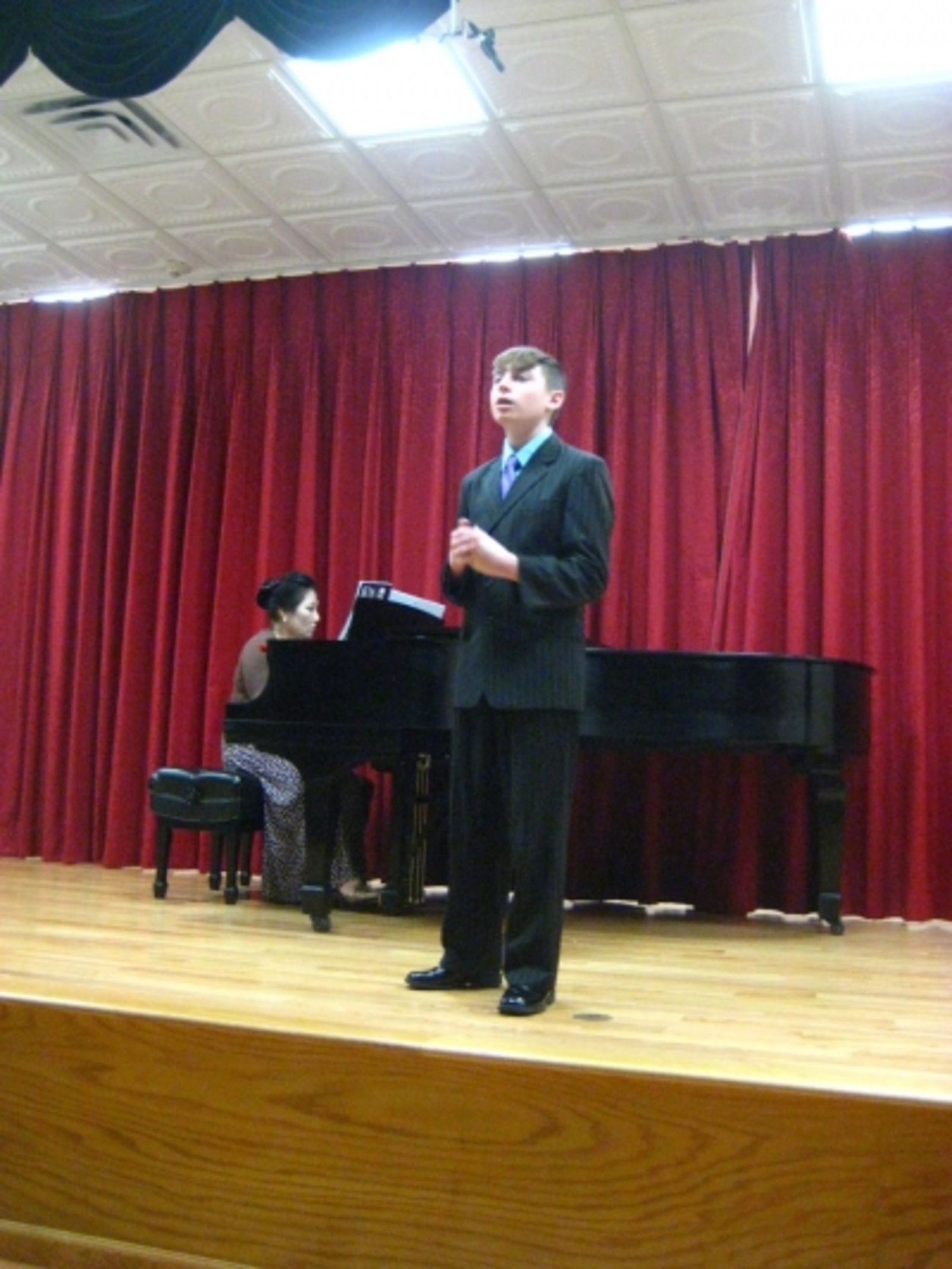Special needs kid thrives at Talent Unlimited

Fourteen-year-old Marc Brandon Gross, is what's called a “2E,” or twice-exceptional, child: he is a talented singer, dancer and actor who can memorize a script in two days that would take most people two weeks to learn, says his mother Maria Gross. But Marc has trouble communicating and socializing because he is on the autism spectrum.
Marc is thriving as a freshman Talent Unlimited High School -- a sign that children with special needs can be successfully integrated into the city's selective high schools. “They bend over backwards to make sure his needs are met,” says Gross.
While Marc should be a poster child for the Department of Education's new push to enroll more special needs children at the city's selective high schools, his mother is angry that the city is bending the rules for admission to schools like his. Marc passed the demanding audition for the musical theater program last year, but some of the students admitted this year did not.
“That's not right. It's not fair, especially not fair to my kid” who played by the rules, Gross says. At Talent Unlimited, more than 45 students (including 13 special needs students) were admitted who either did not audition or didn't meet the school's audition standards.
Gross contacted Insideschools to tell Marc's story after hearing that the city placed more than 1,300 students in 71 of the city’s selective high schools as part of a double-pronged effort to match more students to their round one high school picks and to ensure that schools meet the city’s new special education quotas.
Marc has speech and language disabilities as well as Attention Deficit Hyperactivity Disorder (ADHD). The school offers intensive support: he is in team-teaching classes with two teachers, one of whom is certified in special education. He gets extra help in math and English. The school also provides after-school academic tutoring. The guidance counselor arranged a special peer support group to help Marc work on his socializing skills.
Marc's family expected him to attend high school at School for Language and Communication Development (SLCD), the school for special needs children where he went from kindergarten through 8th grade. But a guidance counselor at SLCD suggested he try out for a public performing arts high schools.
Just like thousands of other aspiring performing artists, Marc practiced for weeks and attended rounds of auditions to try out for four of the city’s audition schools: Talent Unlimited, Frank Sinatra, Professional Performing Arts School and LaGuardia. All four schools require auditions for entrance but do not have academic screens. Yet, this year DOE officials said the city assigned students to both Talent Unlimited and Frank Sinatra based on test scores, rather than artistic ability.
Competition at the city's performing arts schools is fierce; 1,500 students typically audition for 125 seats at Talent Unlimited.
Gross is proud to say her son went through the “appropriate channels of auditioning,” and was awarded a seat. And now Gross is concerned that the admission of dozens of students who did not meet Talent Unlimited’s audition standards – or did not even try out – will compromise the integrity of the program.
Because of his IEP, Marc still struggles academically, Gross says, but he is excited to get up and go to school everyday. "My kid loves the school because everyone is at his level. They can sing, they can dance, and they can act."
Watch video of Marc performing at Talent Unlimited, courtesy of his sister Lauren Gross:
Please Post Comments